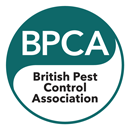Vergo Pest Management Ltd has over 45 years industry experience, offering both commercial and residential customers fast and effective pest control services banishing public health pests.
In addition, badgers can harbour other infections and parasites, making disease transmission an important topic for anyone involved in agriculture or animal welfare.
Bovine Tuberculosis (bTB) and Badgers in the UK
Badgers are recognised as a natural host for bovine tuberculosis (bTB) – a serious disease caused by Mycobacterium bovis. While badgers play an important role in the ecosystem, their ability to carry and spread bTB has made them a focus of concern in agriculture and biosecurity.
Badgers can transmit bTB to cattle, often indirectly. The bacteria may be spread through contaminated feed, water troughs, or pasture, especially when badgers access farm areas at night. Infected animals can also pass the disease through the air via coughing or sneezing, particularly when they come into close proximity with livestock. This creates challenges for farmers, as even cautious biosecurity measures can sometimes fall short in preventing exposure.
The economic impact of bTB in cattle is significant, with entire herds sometimes needing to be tested, restricted, or culled following a positive case. As a result, managing potential wildlife sources of infection is a key concern for those in the agricultural sector.
Badgers themselves may carry the infection for long periods without showing any visible signs. In some cases, the disease progresses gradually, leading to symptoms such as weight loss, swollen lymph nodes, bite abscesses, or breathing difficulties. Although bTB is not typically the leading cause of death among badgers, animals with advanced disease can suffer severely and eventually succumb to it.
Though rare, humans can contract bTB, particularly those who work closely with infected animals or handle contaminated materials. In people, the illness is similar to human tuberculosis, with symptoms that may include a persistent cough, fever, night sweats, and chest pain.
Due to the complexity of bTB transmission and its serious implications, professional wildlife management and biosecurity support can play an important role in helping landowners and farmers minimise risks while ensuring legal and humane removal of protected species like badgers.
Badgers are known to carry a variety of parasites, including fleas, ticks, mites, and intestinal worms. While these are usually species-specific, there is a small risk they could transfer to domestic animals through close contact or shared environments. In addition to bovine tuberculosis (bTB), there have also been reported cases of badgers carrying Salmonella and Leptospirosis (Weil’s disease), both of which can pose health risks to animals and, in rare instances, humans.






